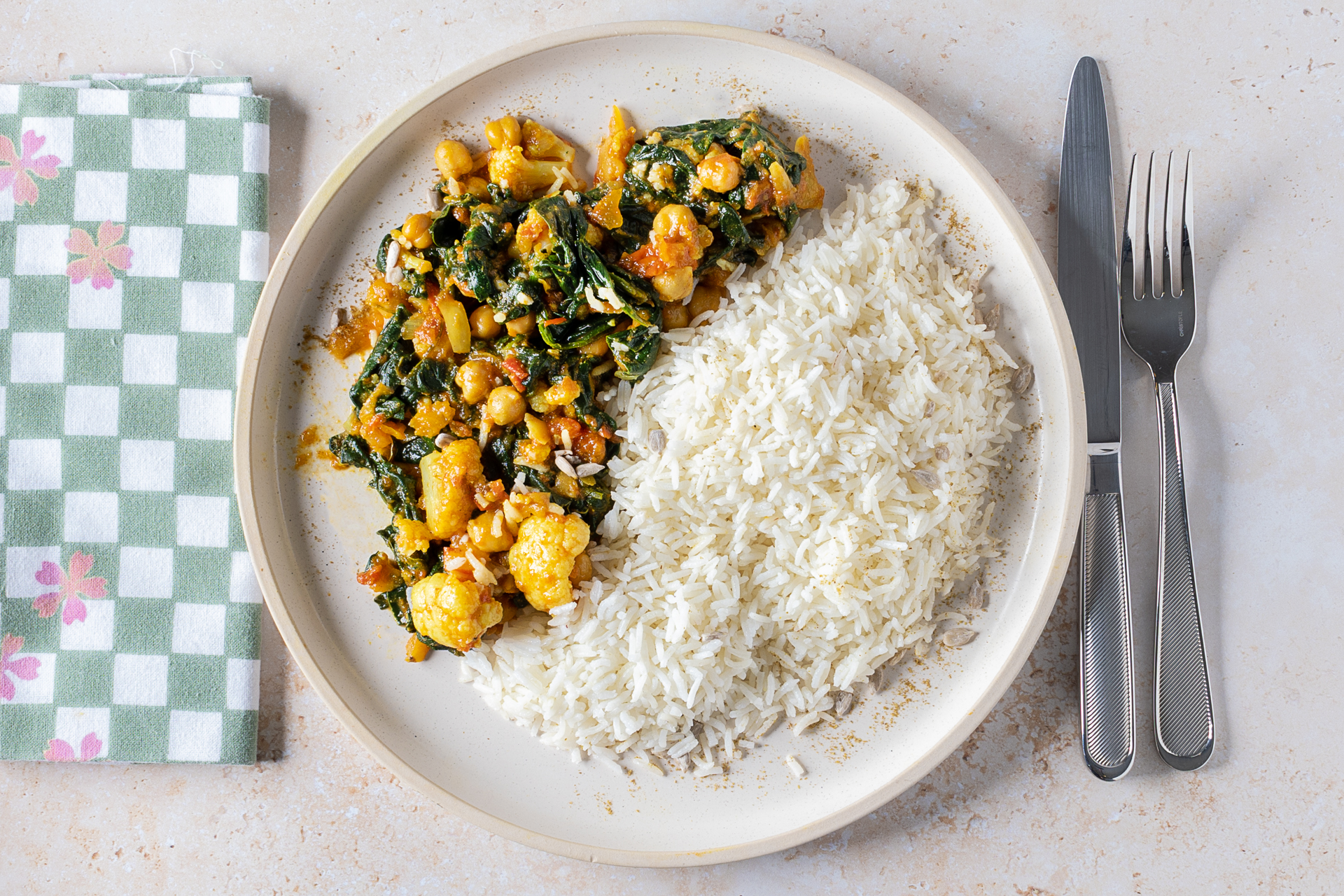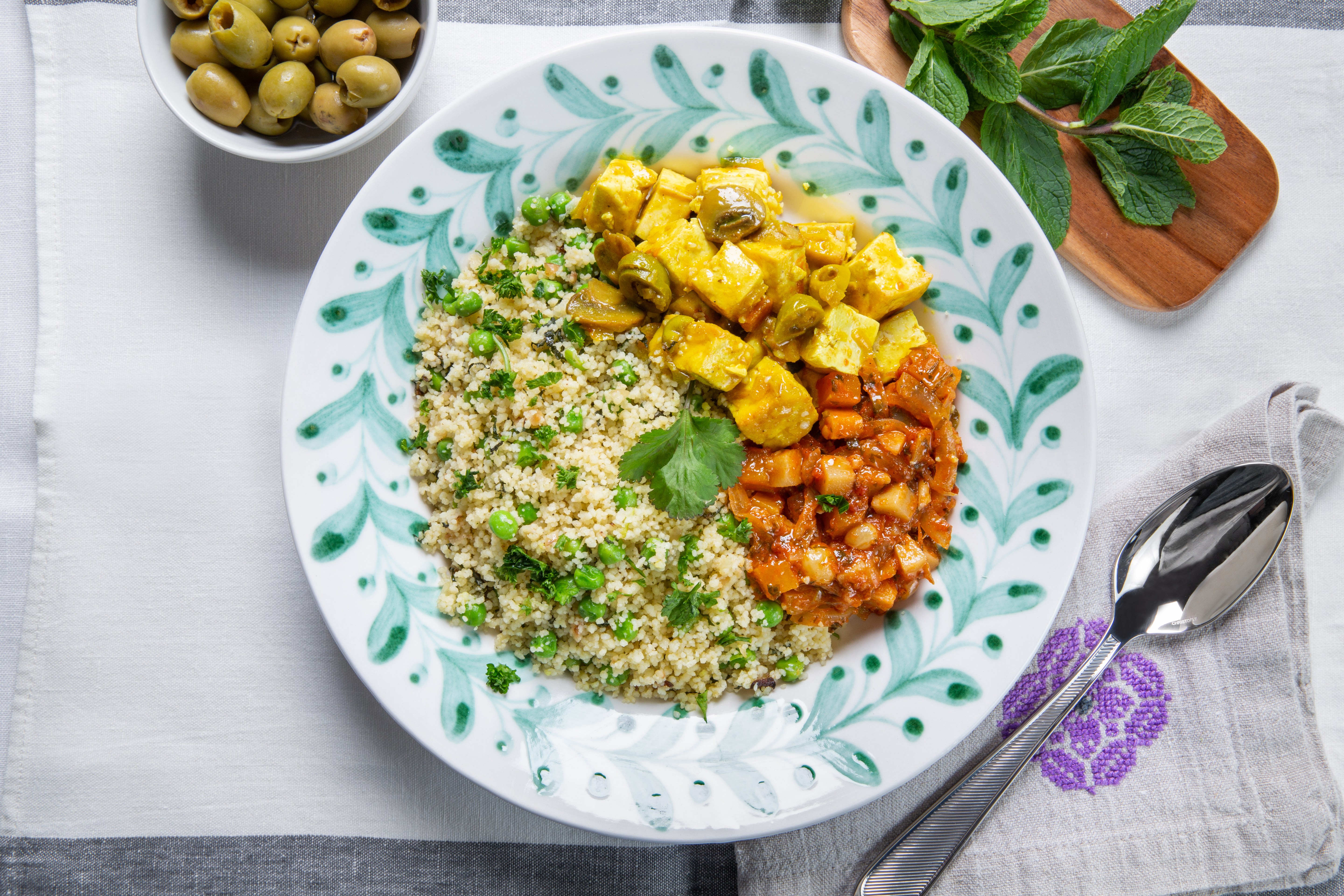Vegan vs. Vegetarian: What's the Difference?

Are you curious about the difference between vegan and vegetarian diets? Well, you've come to the right place! In this article, we'll explore the distinctions between these two dietary choices, their health implications, and what you can cook if you have a vegan or vegetarian friend coming to dinner.
Firstly, what is a vegan diet?
A vegan diet is all about ditching animal products completely and going full-on plant powered. Like vegetarians, vegans avoid eating meat, however they take this one step further and avoid other products derived from animals such as milk or cheese.
Strict vegans won’t even eat honey as this relies on bee farming for production. Instead, vegans load up on fruits, veggies, grains, nuts, and seeds to fuel their bodies with all the good stuff nature has to offer.
How are vegan diets different to vegetarian diets?
Vegetarian diets typically exclude meat, poultry, and seafood, but still allow for the consumption of dairy products and eggs.
Vegan or Vegetarian: Health Considerations
If you’re considering switching to a vegan or vegetarian diet, you may be worried about the impact on your health.
Both vegan and vegetarian diets have the potential to be healthy, as long as they are well-planned and include a variety of nutrient-rich foods. Meal prepping can be a useful tool to ensure you tick off all the nutrients you need in a week.
The main risk in a vegetarian or vegan diet is not getting enough of certain nutrients that are more commonly found in animal-based products, such as vitamin B12, iron, calcium, and omega-3 fatty acids. While these nutrients can be obtained from plant-based sources, they are rarer, so it requires careful meal planning and possibly the use of supplements to ensure you’re getting enough of them. Luckily, many meat alternatives, such as Swiss-based Planted, or most plant-based milks, will add vitamin B12 to their products.
If you’re switching to a vegan diet for the first time, it may be worth consulting with a registered nutritionist to make sure you keep feeling great on your new diet.
What Do Vegans Eat?
Being vegan does not have to mean surviving solely on lettuce leaves and carrots, there are lots of brilliant vegan recipes to choose from. Look for recipes with plenty of vegetarian proteins, for example, tofu, beans, nuts and seeds.
Here are 3 of our favourite easy vegan recipe ideas:
- Chickpea Curry: Sauté onions, garlic, and ginger in a pot, then add spices like turmeric, cumin, and coriander. Stir in cooked chickpeas, coconut milk, and diced tomatoes. Simmer until the flavors meld together, and serve over steamed rice or with naan bread.
- Plant-based Buddha Bowl: Assemble a colourful bowl with a mix of roasted vegetables like sweet potatoes, Brussels sprouts, and cauliflower. Add a scoop of cooked quinoa or brown rice, a handful of fresh greens, and top it off with avocado slices, hummus, and a drizzle of tahini dressing.
- Vegan Stir-Fry: Heat up a wok or skillet and stir-fry a colourful mix of veggies like bell peppers, broccoli, carrots, and snap peas. Add tofu or tempeh for protein and a savoury sauce made from soy sauce, garlic, ginger, and a touch of maple syrup. Serve over a bed of steamed rice or noodles.
Remember, there is also a growing market of vegan substitutes for animal-based products, such as vegan meat alternatives, dairy-free cheeses, and plant-based yogurts. These products can help you recreate recipes that you’re already familiar with, but in a way that meets vegan dietary requirements. Note that these ingredients can be heavily processed, so you will want to make sure you’re also getting plenty of fresh fruits and vegetables.
Vegan vs. Plant-Based: Is there a difference?
Now, let's clear up the confusion surrounding the terms "vegan" and "plant-based." Although they are often used interchangeably, there is a subtle difference between the two.
Being vegan is not only about dietary choices but also extends to lifestyle choices that avoid the use of animal products in any form, including clothing, cosmetics, and household products. It is a broader philosophy that seeks to minimize harm to animals.
On the other hand, a plant-based diet focuses solely on food choices. People who follow a plant-based diet may do so for various reasons, such as health, environmental concerns, or a combination of factors, without necessarily adopting the broader vegan lifestyle.
Why would vegans avoid honey?
Some vegans avoid honey because it's made by bees and exploits and disrupts their natural behaviours. So, to be kind to our bee friends, vegans may decide to stick to sweeteners like maple syrup or xylitol instead.
Are there other plant-based foods that vegans won’t eat?
For most vegans only products that are directly derived from animals are off limits. However, some vegans may choose to support organic or sustainable farming practices that prioritize minimizing harm to insects and other animals. It’s always best to check first.
About Powermeals
Powermeals deliver chef-cooked meals direct to your door in a weekly box. Every dish contains a healthy source of protein with vegetarian and plant-based meals available.


.jpg)